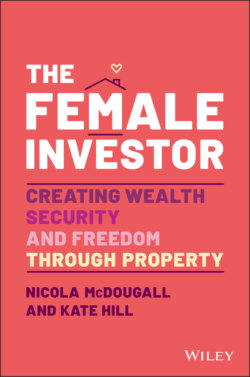Читать книгу The Female Investor - Kate Hill - Страница 42
UNDERSTANDING MORTGAGE REPAYMENTS
ОглавлениеA key decision to make when you're applying for a mortgage, or refinancing an existing one, is whether you want to have fixed or variable interest rates on the loan. There is no right or wrong answer to this question, because it will depend on what the best strategy is for you at the time.
A fixed interest rate is usually a lower percentage than variable. Sometimes this can provide financial peace of mind, especially if there may be a change to your income in the short term, such as changing jobs, studying, or having your first, or your next, child.
However, fixed‐rate mortgages generally have a number of limitations, including restricting how much of the principal loan amount you can pay off over the fixed‐rate period, which is generally between one and five years.
A property loan with a variable interest rate means that the interest rate can go up or down depending on the monetary policy of the Reserve Bank of Australia (or equivalent) as well as your lender's own interest rate movements. There's no question that choosing between a fixed rate and a variable one can mean thousands of dollars in savings over the life of the loan, which your mortgage broker can outline
Loan structure is just as important, though, if you ask us.
Many borrowers get so fixated on interest rates that they forget about loan structure entirely, so they rush in and sign up with a lender for a five‐year fixed rate just because they're the cheapest, without reading the fine print. Then not long after, their circumstances change unexpectedly — life is like that — and they find themselves stuck with a loan that they can't change or refinance because the only thing they considered was the super‐low interest rate that was dangled like a golden carrot in front of them at the time.
